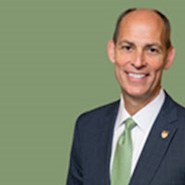
By Lauren Bailey & Thomas Smith, III
Situation
An engineer is a principal in an engineering firm. A state official who is under investigation for taking bribes names the engineer as one of the participants in a kickback scheme. The engineer states that he made legitimate campaign contributions and did not pay bribes in exchange for work. In support of this position, the engineer demonstrates that he made his payments by check, in contrast to the practice of the other participants in the kickback scheme, who used cash. As part of the investigation, the authorities discover that the engineering firm had filed a false income tax return.
Question
Was it a violation of ASCE's Code of Ethics to knowingly file a false income tax return?
Discussion
Yes. However, it should be noted that this case was considered in the 1970s, before revisions to the code gave it its current form. For the sake of this discussion, the current code provisions will be substituted for those in existence at the time the case was decided.
The guidelines to practice in category (a) of canon 6 of the Code of Ethics read as follows: "Engineers shall not knowingly act in a manner which will be derogatory to the honor, integrity, or dignity of the engineering profession or knowingly engage in business or professional practices of a fraudulent, dishonest, or unethical nature."
The engineer submitted evidence at his criminal trial that he was not involved in the kickback scheme. He acknowledged that he had made payments to the state official under investigation. That official had given names to the authorities of all engineers who had made payments but in doing so did not distinguish between those making political donations and those making payoffs for work awarded. Ultimately, the engineer was not prosecuted as a participant in the kickback scheme.
The engineer pleaded guilty to the offense of "willfully making and subscribing to a false corporate income tax return." He was fined $5,000 and sentenced to two years of probation. This plea was the result of an agreement in which the charges against the engineer's partner, who was in very poor health, were dropped.
The circumstances surrounding the filing of the return were considered by the court in determining whether the engineer should serve time in jail. The tax return had been prepared by an outside accountant, and the engineer signed the form without reviewing each line. At issue was the amount set forth on the salaries line of the return. The amount stated as deductions for the officers' salaries was overstated and therefore false. The engineer testified that he had consulted the accountant and was told the form was properly completed. Therefore, although he knowingly signed the return, he did not do so with the intent of deceiving the government.
In reviewing this case, ASCE's Committee on Professional Conduct (CPC) looked to the facts of the case as well as to the decision by the court to put the engineer on probation rather than send him to jail. Because this was a first offense and all evidence showed that the engineer had otherwise conducted his practice in accordance with high ethical and professional standards, the CPC recommended-and the Board of Direction agreed-that the engineer should be given a private letter of admonition.
© ASCE, ASCE News, July, 2006



